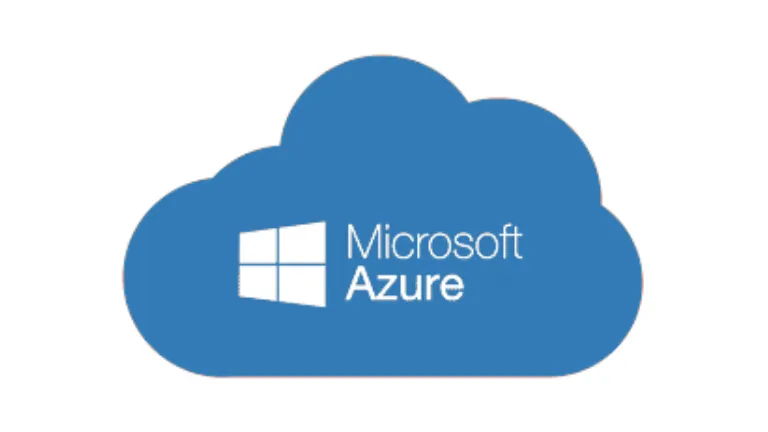Are you interested in becoming an expert in Microsoft Azure spoto? Whether you’re a seasoned IT professional or just starting out, getting certified in Azure can take your career to the next level. But with so many certification options and study materials available, it can be overwhelming to figure out where to start. In this blog post, we’ll break down everything you need to know about Azure certification exams – from the different types of exams available to tips for acing them. So grab a coffee and get ready to become an Azure pro!
What is Azure Certification?
Azure certification is a credential that proves your expertise in Microsoft’s cloud computing platform, Azure. It demonstrates to potential employers and clients that you have the skills and knowledge needed to design, deploy, and manage Azure-based solutions.
There are different levels of Azure certification, ranging from foundational to expert-level certifications. Each level has its own set of requirements and exams that you must pass to earn the certification.
The benefits of becoming certified in Azure are numerous. Certification can lead to higher-paying jobs or promotions within your current organization. Additionally, it shows customers that you have the necessary knowledge to help them with their cloud computing needs.
To become certified in Azure requires passing one or more exams depending on the level of certification desired. These exams test your ability to perform specific tasks related to building and managing applications using various tools within the Azure ecosystem.
If you’re interested in getting certified in Azure, start by researching which exam(s) align with your career goals and experience level. Then get started studying – there are many resources available online including official Microsoft training courses as well as study guides from third-party providers.
The Different types of Azure Exams
Azure certification exams are designed to measure your knowledge and skills in various Azure technologies. There are different types of Azure exams available that cater for different roles and skill levels.
The first type is the Fundamentals exam, which tests your basic understanding of cloud computing concepts, as well as core Azure services like security, privacy, compliance, pricing and support options.
Next up are the Role-based certification exams, which assess your proficiency in specific job functions such as Developer, Administrator or Solution Architect. Each role has its own set of exams with varying difficulty levels.
Another type is the Specialty exam that validates advanced expertise in a particular area such as Security or AI (Artificial Intelligence). These certifications demonstrate a deep understanding of emerging technologies and their application within an organization.
There’s the Microsoft Certified: Azure DevOps Engineer Expert certification that requires passing two separate exams focusing on developing solutions using both Agile methodologies and Azure tools specifically for DevOps practices.
In summary, choosing which type(s) you want to take depends on your career goals and interests but all offer valuable skills recognition upon completion
How to study for an Azure Exam?
Studying for an Azure exam can be a daunting task, but with the right approach and resources, you can ace your certification. The first step is to identify which exam you’ll take and review its objectives thoroughly. Microsoft provides detailed documentation on each exam’s contents, so make sure to read through them carefully.
Once you’ve familiarized yourself with the topics, create a study plan that works for you. This could include using online courses or training programs from Microsoft, attending in-person classes or study groups or reading books about Azure.
It’s important to practice what you’re learning by setting up virtual machines and experimenting with different scenarios in Azure. Use resources like Microsoft Learn and GitHub repositories to get hands-on experience.
Another helpful tip is to focus on areas where you have less experience or knowledge. Don’t spend too much time reviewing topics that already come easily to you; instead, allocate more time towards those subjects where extra effort is needed.
Don’t forget about taking breaks and getting enough rest during your studying process! Your brain needs downtime in order to retain information effectively.
Tips for taking the Azure Exam
Taking the Azure exam can be a nerve-wracking experience, but with the right tips and strategies, you can increase your chances of success. Here are some tips to help you prepare for and take the Azure exam:
1. Familiarize yourself with the exam format: Before taking the exam, make sure you know what to expect in terms of question types and time limits.
2. Use Microsoft’s official study materials: Microsoft offers a range of free study resources such as online courses, practice tests and documentation that will help familiarize yourself with Azure concepts.
3. Practice hands-on labs: Hands-on lab exercises allow you to apply your knowledge in real-world scenarios which is essential for passing an Azure certification.
4. Join a community forum or group: You’ll find many active communities dedicated to discussing Azure on forums like Reddit or Stackoverflow where troubleshooting common problems will give you an edge during exams.
5. Time management is key: Don’t spend too much time on any one question – If it’s not clear at first glance then move onto another question that might yield better results.
Remember these tips when preparing for your next Azure certification!
What to do after you get Azure Certified?
Congratulations! You’ve worked hard to earn your Azure certification. But what’s next? Here are some suggestions:
First, update your resume and LinkedIn profile. Highlighting your new certification will increase your visibility to potential employers.
Consider expanding your skillset by learning another cloud platform, such as AWS or Google Cloud. Having knowledge of multiple platforms makes you a more valuable asset to any organization.
Join online communities and attend tech events related to Azure. This is a great way to network with other professionals in the field and stay up-to-date on industry trends.
Continuously improve upon the skills required for your job role. Taking advanced courses or earning additional certifications can demonstrate expertise in specific areas of Azure technology.
Consider sharing your knowledge by writing blog posts or speaking at conferences about topics related to Azure. Not only does this help establish yourself as an expert in the field, but it also gives back to the community.
In short, there are many opportunities available after earning an Azure certification. Keep growing and learning while staying connected with others who share similar interests and goals!
Conclusion
Azure certification is an excellent career move for anyone interested in cloud computing. It demonstrates that you have the skills and knowledge required to design, develop, and manage applications on the Microsoft Azure platform.
To get started with your Azure certification journey, choose the exam that aligns with your interests and expertise. Then plan your study approach by using various resources such as Microsoft official training courses or practice exams.
Remember to take breaks during studying sessions to avoid burnout, stay focused during the exam by reading all questions carefully before answering them, and use online forums to connect with others who are preparing for their exams.
After achieving your certification goals from Azure, showcase it on your resume or LinkedIn profile. Keep learning about new features of Azure so you can maintain a comprehensive understanding of this robust cloud platform spoto examination service.
With dedication and commitment towards obtaining an Azure certification along with continuous learning thereafter will help you advance in a promising field of technology!

